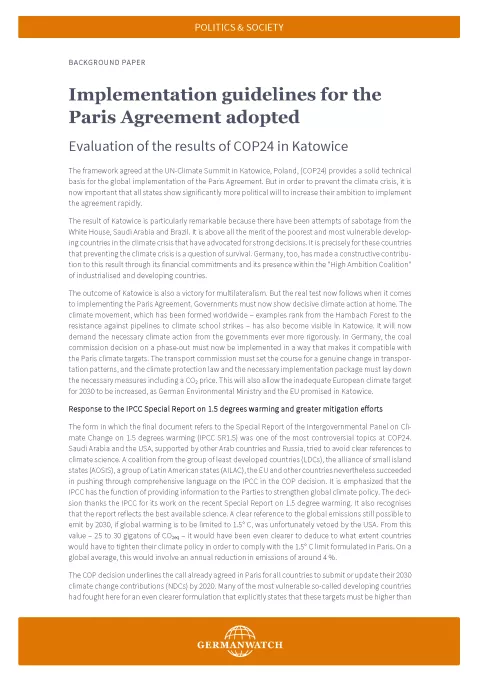
The so called rulebook agreed at the Climate Summit in Katowice, Poland (COP24) in December 2018 provides a solid technical basis for the global implementation of the Paris Climate Convention. To avert the climate crisis, however, it is essential that all states show significantly more political will to implement the agreement swiftly.
The outcome of Katowice is nevertheless a victory for multilateralism, which succeeded despite some attempts at sabotage by the White House, Saudi Arabia and Brazil. This is due - above all - to the efforts of the developing countries most vulnerable to the climate crisis that pushed for strong decisions. But Germany, too, has made a constructive contribution to this result through its financial commitments and its appearance within the "High Ambition Coalition" of industrialised and developing countries.
The real test will now be the implementation of the Paris Agreement. The climate movement, which has been forming in Germany and worldwide from the Hambach Forest to resistance to pipelines to climate school strikes and has also become visible in Katowice, will now demand the necessary climate action from governments more and more rigorously. Germany must implement the phase-out path decided by the Coal Commission so that it can be reconciled with the Paris climate targets through improvements. With the Climate Protection Act and the action package for its implementation, a CO2 price must also be fixed in 2019.
In this follow-up paper, we present the most important decisions, above all on the elements of the implementation guidelines and - where relevant - the political compromises between the states on them. We also analyse where we consider the rules to be robust enough - and where not.







